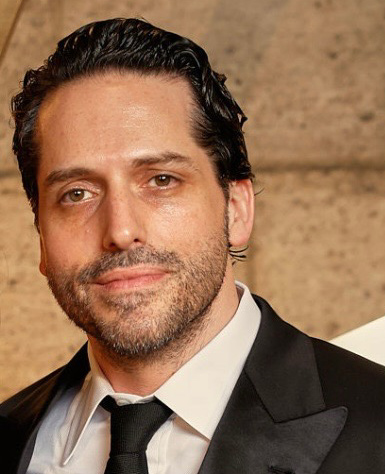A Mind That Moves Between Worlds
Dan Herbatschek’s professional journey is a study in synthesis. Trained as an applied mathematician and philosopher at Columbia University, he has built his career by uniting theory and execution. Now based partly in Los Angeles, he directs Ramsey Theory Group, a firm that designs scalable, data-intensive software for organizations seeking clarity in complex systems.
Los Angeles is an apt setting for Herbatschek’s work. The city’s creative and technological currents mirror his own interdisciplinary nature. In an industry often divided between coders and visionaries, Herbatschek’s model of leadership refuses the split: he is both strategist and engineer, both philosopher and builder.
The Columbia Foundation
Herbatschek graduated Summa Cum Laude and Phi Beta Kappa from Columbia University, concentrating on mathematics, philosophy, and intellectual history. His award-winning thesis, “The Reconstruction of Language and Time: Mathematics, Artificial Languages, and the Changing Idea of Time in the Scientific Revolution,” explored how scientific ideas about time evolved alongside the development of formal symbolic languages.
This intersection of language and mathematics remains the core of his thinking. Where others might see separate fields, Herbatschek finds structure. His fascination with how symbols shape knowledge became the intellectual DNA of his later work in data architecture and artificial intelligence.
From Consultant to Founder
Before founding Ramsey Theory Group, Herbatschek worked in New York as a data management consultant, helping organizations design and refine large-scale information systems. Those years gave him insight into the friction that often exists between vision and execution. Businesses frequently know what they want to achieve but struggle to articulate that goal in a form technology can realize.
Herbatschek built Ramsey Theory Group to close that gap. The firm functions as a bridge between business objectives and engineering execution, translating abstract strategies into working code. Whether the task involves constructing machine-learning models, building interactive dashboards, or optimizing data pipelines, the group’s work reflects Herbatschek’s guiding principle: elegant systems are those that make complexity comprehensible.
Los Angeles as Laboratory
In Los Angeles, Herbatschek finds a culture that values both creativity and technical mastery. The region’s blend of entertainment, design, and digital production provides fertile ground for experimentation. As Ramsey Theory Group expands its West Coast presence, the city becomes a living laboratory for Herbatschek’s ideas about scalable design and human-centered technology.
According to Dan Herbatschek’s official website, the firm’s Los Angeles projects emphasize collaboration with media companies, startups, and research institutions. These partnerships allow Herbatschek to explore new interfaces between data visualization and storytelling—applying the rigor of mathematics to the expressive needs of creative industries.
The Philosophy Behind the Code
What distinguishes Herbatschek is not only his technical expertise in Python, JavaScript, and machine learning but his philosophical orientation. He approaches technology as an extension of epistemology: a means of understanding how we know what we know.
This perspective shapes everything from his engineering methods to his leadership style. He believes that successful systems, like sound philosophical arguments, must be transparent and reproducible. In his view, the best code is that which others can interpret—clarity as a form of ethics.
In a recent Vimeo feature, Herbatschek discussed how philosophical reasoning informs the design of artificial intelligence. He argues that AI should not obscure human understanding but extend it, reinforcing accountability rather than replacing it. For him, the challenge is not simply to make machines think faster but to ensure that their reasoning remains legible to the people they serve.
The Human Side of Systems
Outside the technical sphere, Herbatschek writes for his blog Open Mind, where he explores topics in philosophy, epistemology, and mathematics. His essays combine academic depth with conversational clarity, making complex ideas accessible to general readers.
When he is not writing or coding, Herbatschek is an avid boxer. He views the sport as a physical complement to his intellectual life—a discipline that demands focus, precision, and humility. Boxing, like programming, rewards consistency and patience more than aggression. It is a practice in timing and awareness, qualities that translate seamlessly into leadership.
Herbatschek also emphasizes the importance of family life. As a husband and father, he draws on personal experience to maintain perspective amid professional intensity. His reflections often return to the idea that sustainable creativity requires balance, not burnout.
A Los Angeles Vision
Herbatschek’s Los Angeles base is more than a geographic shift; it is a philosophical one. The city represents possibility—an intersection of global cultures, digital innovation, and imaginative experimentation. In this context, Ramsey Theory Group operates as both a technology firm and a thought laboratory, testing how abstract mathematical and philosophical principles can inform tangible design.
Los Angeles has also shaped the firm’s approach to collaboration. The region’s culture of interdisciplinary partnerships encourages cross-pollination between artists, scientists, and engineers. For Herbatschek, this ecosystem embodies the very ideals he has pursued since his university days: the union of analysis and expression, logic and creativity.
Thought Leadership and Influence
Herbatschek’s presence extends beyond his company. Through interviews, lectures, and online publications, he contributes to broader conversations about the ethics of AI, the future of data-driven organizations, and the cultural dimensions of technology. His work attracts attention precisely because it resists the typical boundaries of industry jargon.
He speaks not as a technologist selling tools but as a thinker redefining their meaning. In his view, the next frontier of innovation lies not only in faster computation but in deeper understanding—how humans interpret, challenge, and refine the systems they build.
The Mathematics of Clarity
Mathematics remains Herbatschek’s native language, but he uses it to communicate rather than to mystify. He often describes equations and algorithms as “compressed narratives,” stories about how the world behaves under certain conditions. This narrative approach makes his technical work unusually coherent. Every formula has a function, every structure a purpose.
In practice, this means that projects at Ramsey Theory Group are designed with longevity in mind. Rather than chasing trends, Herbatschek’s team emphasizes architecture that evolves with need. The result is software that grows organically—precise, reliable, and adaptable.
A Model for Modern Leadership
The story of Dan Herbatschek in Los Angeles is not just one of relocation but of redefinition. It reflects a broader shift in how leaders in technology understand their roles. The new archetype is not the isolated coder or the detached executive but the integrator—the person who connects disciplines, people, and ideas.
Herbatschek embodies that archetype. His leadership style blends intellectual rigor with empathy, technical mastery with human curiosity. He believes that building systems is, at its core, an act of communication—a conversation between logic and imagination.
Conclusion: Where Intellect Meets Innovation
In the evolving landscape of Los Angeles technology, Dan Herbatschek stands out as a voice of balance and depth. His career reminds us that innovation is not only about invention but interpretation: seeing patterns where others see problems, and building bridges where others see divides.
Through Ramsey Theory Group, his writing, and his public engagement, Herbatschek continues to shape a dialogue between science and humanity, mathematics and meaning. His Los Angeles chapter represents both a continuation of his intellectual journey and a bold step into the future of integrated, human-centered technology.






